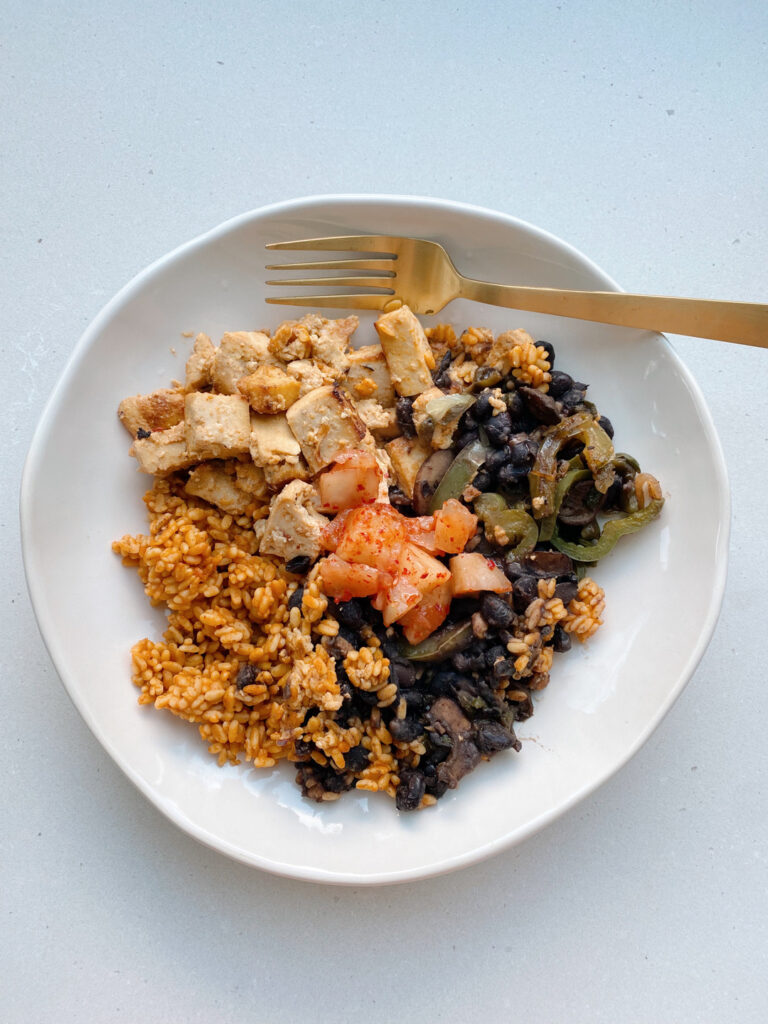Discover 9 fermented foods that can be incorporated into your diet to enhance your digestion and boost your immunity.
Numerous studies have emphasized the beneficial effects of fermented foods on the gut microbiome. By including a few servings of fermented foods in your weekly meal plan, you can significantly improve your gut health, manage weight, regulate blood sugar levels, and more.
Interested in learning more about fermented foods? Keep reading for a comprehensive list of fermented foods and easy yet delicious ways to include them in your diet.
What Exactly Are Fermented Foods?
Fermentation is a process where microorganisms like bacteria and yeast break down molecules such as sugar. This process induces various chemical changes in the food. The most significant outcome of fermentation is the extension of the final product’s shelf-life and the enrichment of beneficial bacteria in the food.
Probiotics And Their Advantages
While the combination of “bacteria” and “food” may seem unusual, probiotics, which are healthy strains of bacteria residing in the digestive tract, play a crucial role in overall health. These beneficial bacteria promote optimal digestive health, enhance immune function, and offer various other health benefits.
The probiotics found in fermented foods have been linked to antioxidant, antimicrobial, antifungal, anti-inflammatory, anti-diabetic, and anti-atherosclerotic benefits. Regular consumption of these probiotics can lead to an increased likelihood of experiencing these advantages.
Instead of resorting to expensive probiotic supplements, incorporating top-fermented foods into your weekly meals can be just as effective in boosting your gut health and overall well-being.
Top 9 Fermented Foods to Consider
Fermented foods are not only packed with probiotics but are also versatile and flavorful. From pickled vegetables to cultured dairy products, there are numerous ways to introduce fermented foods into your diet. Here are some top choices to add to your grocery list:
1. Kombucha
Kombucha is a fizzy, tangy fermented beverage made from black or green tea. Studies on animals and test-tube models suggest that kombucha may help in lowering blood sugar levels, reducing cholesterol and triglyceride levels, and inhibiting the spread of cancer cells.
Additionally, kombucha is a versatile drink that can be brewed at home using tea, sugar, and a SCOBY (symbiotic culture of bacteria and yeast).
2. Sauerkraut
Sauerkraut, a delicious fermented food with a long history of health benefits, is traditionally made from raw cabbage and lactic acid bacteria. It provides essential nutrients like vitamin C, vitamin K, iron, and manganese. Making sauerkraut at home is simple and involves fermenting grated cabbage with salt and other vegetables for a few weeks.
3. Kefir
Kefir is a fermented milk beverage rich in protein, phosphorus, calcium, and vitamin B12. It is low in lactose, making it easier to digest for individuals with lactose intolerance. Animal studies suggest that kefir may reduce inflammation and possess anti-allergic properties, benefiting conditions like asthma.
4. Tempeh
Tempeh is a popular fermented soy product high in protein, probiotics, iron, calcium, and riboflavin. It is rich in antioxidants and soy isoflavones, which can lower cholesterol levels, combat oxidative stress, and improve bone health.
5. Natto
Natto, made from fermented soybeans, is a nutrient-dense food containing protein, manganese, iron, and copper. It contains an enzyme called nattokinase, which can lower blood pressure and prevent blood clots.
6. Pickles
Commonly found on supermarket shelves, pickles are fermented vegetables soaked in brine, providing gut-friendly probiotics. Homemade or naturally fermented pickles offer more health benefits than those soaked in vinegar.
7. Kimchi
Kimchi, a staple in Korean cuisine, is a fermented vegetable dish seasoned with herbs and spices like garlic, ginger, and scallions. Studies indicate that consuming kimchi can lead to reduced cholesterol and blood sugar levels, aiding in weight control and promoting insulin sensitivity.
8. Miso
Miso, a fermented soybean paste used in dishes like miso soup, is packed with nutrients like manganese, vitamin K, copper, and zinc. Due to its high sodium content, moderation is key when consuming miso.
9. Probiotic Yogurt
Probiotic yogurt is a convenient way to increase your probiotic intake. It contains lactic acid bacteria that enhance the concentration of probiotics in the gut. Regular consumption of probiotic yogurt may help lower blood pressure, especially in individuals with hypertension.
Incorporating More Fermented Foods Into Your Diet
Looking for simple ways to include more fermented foods in your daily meals? Here are some easy strategies to enjoy these nutritious and flavorful ingredients:
– Substitute regular yogurt with probiotic yogurt for a nutrient-rich snack or breakfast option
– Replace sugary beverages with kombucha for a refreshing drink
– Try organic tempeh or natto as plant-based protein alternatives
– Incorporate kimchi, pickles, or sauerkraut in sandwiches, wraps, or salads
– Enjoy miso soup as a side dish to boost your probiotic intake
Adding fermented foods to your diet can significantly improve your gut health and overall well-being. These probiotic-rich foods not only support digestive health but also provide essential vitamins, minerals, and nutrients necessary for optimal health.
If you’re looking to achieve a balanced approach to your food choices, take a brief quiz to determine your eating archetype and discover what your unique type requires to maintain a healthy balance in nourishing yourself. By understanding your eating style, you can break free from food and diet obsessions, maintain a healthy weight, and foster a positive relationship with food and your body.
In conclusion, fermented foods offer a myriad of benefits for digestive health and immunity. By incorporating these probiotic-rich foods into your diet, you can enhance your overall well-being and enjoy a variety of delicious flavors and textures.

